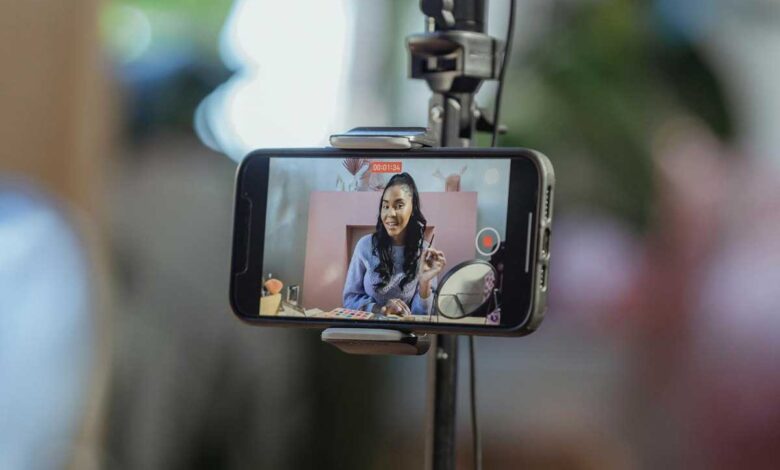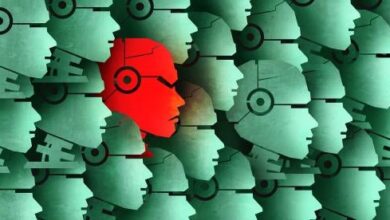Unveiling the Power of Generative AI Influencers: Shaping the Future of Social Media

In today’s rapidly evolving digital landscape, the emergence of generative AI influencers is reshaping the way brands interact with their audience on social media. These digital entities, powered by advanced artificial intelligence, are not only redefining the boundaries of creativity and engagement but also offering unprecedented opportunities for marketers. This article delves into the ascent of generative AI influencers within social media, highlights their benefits in marketing, showcases successful campaigns, and provides insights on integrating them into social media strategies.
The advent of generative AI influencers marks a pivotal shift in the social media ecosystem. Initially, the realm of influencers was dominated by real individuals who shared their lives, insights, and endorsements with their followers. However, the introduction of AI-driven personalities has introduced a new paradigm. These virtual figures, equipped with the ability to generate content autonomously, are captivating audiences with their unique charm and the novelty of interacting with a non-human entity.
The technology behind generative AI influencers leverages complex algorithms and machine learning to create personalities that can engage with real-time trends, mimic human emotions, and even develop their own sense of style. This has enabled them to seamlessly integrate into the social fabric of platforms such as Instagram, Twitter, and TikTok, where they command substantial followings and interact with users just like their human counterparts.
Moreover, the rise of these digital influencers is propelled by the increasing demand for fresh, innovative content. As social media landscapes become more saturated, the novelty and uniqueness offered by AI influencers present a new frontier for capturing audience attention. Their ability to continuously evolve and adapt to the latest trends allows them to stay relevant, making them invaluable assets in the ever-changing world of social media.
Benefits of Using Generative AI Influencers in Marketing
Integrating generative AI influencers into marketing strategies offers a multitude of benefits. First and foremost, they provide a level of consistency and reliability unmatched by human influencers. These digital personalities are immune to the unpredictabilities that often accompany human behavior, such as scheduling conflicts, personal issues, or controversial actions that could tarnish a brand’s image. This reliability ensures that marketing campaigns can proceed smoothly without unexpected hiccups.
Another significant advantage is the unparalleled level of customization and control brands have over the content produced. Since generative AI influencers are created and managed through software, every aspect of their appearance, voice, and even personality can be tailored to align perfectly with the brand’s image and campaign objectives. This level of customization allows for highly targeted and cohesive marketing messages.
Furthermore, the use of generative AI influencers can significantly reduce the costs associated with traditional influencer marketing. There are no logistical expenses such as travel, accommodations, or high fees that typically come with partnering with high-profile human influencers. This cost-efficiency, combined with the potential for high engagement rates, makes generative AI influencers a highly attractive option for brands looking to maximize their marketing budgets.
Examples of Successful Campaigns with Generative AI Influencers
Several brands have already harnessed the power of generative AI influencers to drive successful marketing campaigns. One notable example is the collaboration between a luxury fashion brand and a virtual influencer, which garnered widespread attention for its innovative approach. The campaign featured the AI influencer showcasing the brand’s latest collection across various social media platforms, resulting in a significant increase in online engagement and brand awareness.
Another example involves a major beauty brand that created a custom AI influencer to promote its new skincare line. By leveraging the influencer’s virtual presence, the brand was able to reach a wider audience, particularly younger demographics who are more receptive to digital innovations. The campaign not only boosted sales but also positioned the brand as a forward-thinking leader in leveraging technology for marketing.
These examples underscore the potential of generative AI influencers to revolutionize marketing strategies. By creating engaging, relatable, and innovative content, these digital personalities can connect with audiences in ways that traditional marketing methods cannot.
Incorporating generative AI influencers into a social media strategy requires careful planning and consideration. The first step is to clearly define the campaign’s goals and target audience. Understanding who the campaign is intended to reach and what action you want the audience to take is crucial for selecting the right AI influencer that aligns with these objectives.
Next, it is important to choose the right platform for the campaign. Different social media platforms cater to different demographics and content formats, so selecting the most appropriate platform is key to maximizing the reach and impact of the AI influencer.
Finally, creating a detailed content plan is essential. This should include the type of content the AI influencer will produce, the frequency of posts, and how they will interact with followers. Engaging content that resonates with the target audience will drive the success of the campaign.
In conclusion, the rise of generative AI influencers represents a significant evolution in social media marketing. By offering benefits such as reliability, customization, and cost-efficiency, they provide a unique opportunity for brands to engage with their audience in innovative ways. As technology continues to advance, the role of generative AI influencers in shaping the future of social media is poised to grow even further. Brands that embrace this trend and incorporate AI influencers into their marketing strategies stand to gain a competitive edge in the digital landscape.
Given the complexity and evolving nature of this topic, ongoing research and adaptation will be key to leveraging the full potential of generative AI influencers in the dynamic world of social media marketing.



